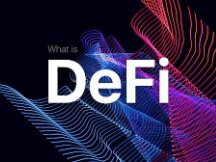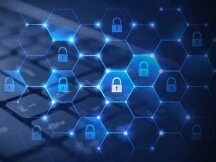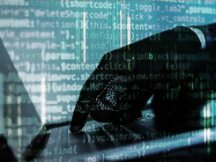16z: DeFi provides financial privacy. Will the rules be repealed?

The Amendment protects our rights to our personal property. For example, the government cannot inspect our home or computer unless we have a permit under certain circumstances, and we believe that this search will present evidence of violations.
Not that the government can't sue us to testify in court for proof of these crimes. The Fifth Amendment protects that.
The Fourth Amendment, on the other hand, is supposed to provide little protection for property we transfer to third parties, even to trusted third parties such as banks. This "Third Rule" is the basis of the government's right to collect information from financial intermediaries and allows the government easy access to information exchanged by any company. No liability or reason. (This is further reinforced by the voiding requirement by the courts for banks to keep records of their financial transactions [1]).
For better or for worse, the third rule is very profound. However, once technological developments such as DeFi (Decentralized Finance) block third parties, the government cannot use third party systems to monitor these changes.
So here is the question. Can the government restrict these DeFi devices and force third-party intermediary users to take the extra care of third-party rights?
These questions are all the more important in terms of new web3 technologies that affect programmers, consumers and entrepreneurs alike.
Relationship between programmer and user
Think of a few tips that have become popular in recent years. Manufacturers of DeFi products (called "programmers" for short) must comply with the "Know Your Customers" policy on users of these products. Developers are currently unable to collect data due to their lack of business relationships with end users.
However, if the government wants programmers to track user behavior. Decisions like these are important for publishing out-of-the-box, out-of-the-box DeFi protocols and policies that third parties can enforce. Some say that part of the Business and Employment Act (HR 3684), which was signed into law in mid-November, can be read as programmer liability.
Let's say the government commissioned a programmer to track user behavior. These commands essentially make standard construction illegal, without the DeFi protocol and rules that can be used by third parties.
It seems that I have misinterpreted the rules, but reading these rules is intended to improve the technology that the government considers to be better through the protection of privacy. Government agencies may claim that DeFi platforms support tax exemptions. Instead, programmers must interact directly with users and have exchanges that require information to be written.
This interpretation of the law may allow people to move from one activity to another being protected by the Amendment Act (business does not involve third parties) and activities less protected by the Amendment Section (the business with third parties). Below, I'll explain why we believe privacy restrictions as such may violate the Code.
Evolution of technology, how to fall behind
The principle of the Third Opinion is that "Publication of a letter sent to a third party seeking information about that person does not violate the Secretary's [Fourth Amendment] rights."[3] The law "everyone has the right to testify", including the evidence he or she has learned about you in business [4]. Introducing this type of financial intervention into your financial business exposes you to risk.
Technology exacerbates this disadvantage. While most of our businesses are cash strapped, there is no financial implication to sue the government. Ideally, the government can call the people we trade with, but these people often find it difficult, if not impossible, to remember who they were with money 3 months ago. Technology has broadened our approach to business by allowing us to do business with distant customers, but this requires intermediaries as they require checks, credit cards and similar procedures. happen. Simpler, but confidential.
The balance of power is the transfer of government to self. And, of course, the government is deciding on a way to bring the balance back to itself.
Today, modern financial technology has appeared. By blocking out middlemen, you can enjoy the benefits of old cash as well as the modern benefits of the power business. The balance of power is the transfer of government to self. And, of course, the government is deciding on a way to bring the balance back to itself. The Stylized Timeline provides:

The right to use protective gear, right?
However, requiring journalists to monitor who is exercising their rights essentially restricts the use of private funds to control spending and may violate the Four Amendments. This self-determination is why HR 3684 is not interpreted as incompatible with encoders. While the "competition for the translation of legal documents" exists, "the doctrine of legal evasion" applies "the reasonable assumption that Congress has no intention of using alternative means. Which raises d 'important questions of law'. And this decision can be given A. The basis does not apply to all laws that have been widely read.
The third dose is for simple maintenance only.
First, if the government attempts to prevent the creation and distribution of the conflicting DeFi code [6], the government will do so to scoop third parties for surveillance purposes, not for financial reasons (historically, the industry of electricity needs third parties). . [7] The essence of the third theory is that "there is no hope of confidentiality on the basis of information that a person may give to another party", because it is up to the police "to choose the exchange and want to transfer the information to a third party". parties, the transfer of information is not really voluntary. These people have no risk of disclosing the information. Data. This risk was imposed on them by a government order [9].
If the government wants to restrict the creation and export of DeFi codes without interruption, it does so to allow third parties to come back to facilitate inspection, without the need for funds.
So, by restricting the use of technology by others, in effect for the purpose of re-engaging with third parties in the industry, the government would like people to "drive" "personal information" to them or gain protection of the 4th Amendment.
No personal property
Give an example. The court said that when the driver is stopped (1) the police can search the occupants of the car so that the weapons can remain in the hands of the driver without hesitation, but (2) they cannot find the parked car alone . body. Consider that the state requires all vehicles on the road to have no physical separation. (e.g. similar to reading [11] HR 3684 in a broad sense, complements the tasks performed by automakers as a personal body: automakers have multiple drivers (who will buy or lease a car from a third party) and assume that you were forced to disclose the names and addresses of any driver without a vehicle even in the absence of a business relationship.
Consider the state requiring all vehicles on the road to have separate bodies so drivers are not protected by the Fourth Amendment.
Although there is no prior fact, it is likely illegal because it violates the general provisions of the Fourth Amendment Act. For example, a government cannot circumvent the Fifth Amendment by forcing them to testify in a civil case and then use that information in a criminal case "he must be compelled to prove himself in any crime". [12] Therefore, you must not violate your Fourth Amendment privacy by deleting your personal property.
Technology law that protects other laws
In fact, courts have long recognized that certain skills are necessary to protect the law and prohibit the use of those skills to violate the law. For example, the court ruled that the First Amendment included the right to register public officials, such as police officers, in public places. [13] The court's initial decision was that citizens have the right to modify "the right to information relating to the work of civil servants". Therefore, they argued that the First Amendment should be equally effective in preventing the collection of useful tools to do so. Data - "written eyes have the right to see and hear", "mean or exclude thoughts of the true object" [15].
Of course, for most of the country's history, such spontaneous video recordings were technically impossible, at least for the average person. But once a machine is created, the government cannot stop it, and people will rely on knowledge without the help of technology.
Courts have long recognized that certain technologies are necessary to protect the law and prohibit the use of such technologies in violation of the law.
Similarly, the right to vaccination depends on the “right to determine fertility” [16]. However, the effective implementation of this policy requires the assistance of technology. Whether they come from centuries-old devices, like gloves, or from sophisticated doctors who have recently developed technology, these technologies are also subject to significant regulations. The use of the latex tool or the tablet itself is not "...decisive...sterile". Decisions are made before using the tool. However, the use of these technologies promotes the development of freedom, and restricting the use of these products or drugs may reduce the right of people to make decisions about their families and establish reality.
Technology legal rights that protect legal rights to personal information
The same goes for personal information whose "right to privacy" is protected by a child protection court order. The Fourth Amendment guarantees the confidentiality of human communications as long as they keep their communications private and the government does not share information with third parties. In order to implement this policy effectively and bring it to third parties without losing them, you may block the average person using 4th Amendment protection technology, such as cryptographic devices developed by coders. Restricting the use of this technology (or requesting changes to your 4th Amendment waiver) would violate your 4th Amendment Privacy Policy.
These issues have not yet been resolved. The courts can dismiss a federal dispute. Especially where public safety and police deem it necessary.
For example, some states have mask protection laws that prohibit people from wearing masks in public. Some courts have struck down that law, arguing that masks are an important part of protecting privacy, even in public places, and encouraging people to voice negative thoughts without fear of government or private companies. [17] However, other courts have retained the mask. [18] Therefore, it is not possible to predict exactly how courts will respond to legal questions regarding laws that prohibit the use of other private technologies, such as multiple DeFi devices.
What I mean here is that the case for a legal contest is strong and will win. The courts should at least not interpret the rules to create legal problems [19].
form below
[1] Titre : California Bankers Ass'n v. Sultz, 416 U.S. 21(1974).
[2] See § 80603 (26 U.S.C. amendment § 6045(a)).
[3] United States v. Miller, 425 U.S. 435, 444 (1976).
[4] Branzburg et Hayes, 408 U.S. 665, 688(1972).
[5] Clark v. Martinez, 543 U.S. Pat. Tap. Tap. 371, 381 (2005).
See [6]. Peter Van Valkenburgh, Electronic Cash, Decentralized Exchange, and Legal ("For example, administrators will notify developers to modify procedures and smart software contracts they publish to provide users with personally identifiable information to a third party on the network ...").
[7] This would be similar to the government's attempt to restrict the use of encryption. In the 1990s, the government tried to use (and probably should eventually use) "clipper chips", devices that allowed communication but required "escrow" encryption keys for where the government entered. More recently, in the 2010s, government officials ordered tech companies to use similar key devices to allow (for example) government access to electronic cellphone information (the law says they have a Residency permit). or similar agreement). This is called the "black" argument. Police fear that secrecy will allow criminals and criminals to exploit government surveillance and search technology. See Rianna Pfefferkorn, The Risk of "Responsible Encryption", Ctr. for Internet and Social Media (February 2018)
But at least the Clipper chip and major escrow sites seem to believe that the government can only use escrow data with a license to do so. Attempts to ban DeFi to ensure daily financial transactions are reported to the government are a way to circumvent accountability and requirements.
[8] Smith v. Maryland, 422 U.S. 735, 744 (1979) (larger); And United States v. Miller, 425 US 435, 442 (1976) see (people speak of "deficiency... Indeed, "legitimate expectation of privacy" refers to information contained in banking information "such as the only information that can be sent to the bank". When the data is transmitted to the government by this person”).
See [9]. Peter Van Valkenburgh, Electronic Cash, Decentralized Exchange, and the Law ("If you do not provide this information to a third party, we maintain reasonable expectations and license to receive it.")
[10] United States v. Flores-Lopez, 670 F.3d 803, 807 (7th Cir. 2012); United States v. Wurie, 728 F.3d 1, 16 (1st Cir. 2013).
[11] Restrictions on tinted windows may be legal, but are justified by the need "to establish the necessary range for car windows for optimum driving". Klarfeld v. Condition, 142 Cal. application. 3d 541, 545 (1983) (cited 49 C.F.R. § 571.205 S2 (1982)); People c. Niebauer, 214 Cal. application. 3d 1278, 1290 (1989) (bear in mind that some level of tint "enters some windows not suitable for visual driving").
[12] McCarthy v. Arnstein, 266 US 34, 40 (1924); Apps. Guinn v. United States, 238 United States 347, 360, 364-65 (1915); State c. Morris, 42 2d Ohio St. 307, 322 (1975) (stating that the search for a person is not covered by the amending law unless the government intends "for the purpose of protect the law").
[13] Fields c. Ville de Philadelphie, 862 F.3d 353 (3d Cir. 2017); Turner c. Lieutenant Driver, 848 F.3d 678 (5th Cir. 2017); Illinois v ACLU Alvarez, 679 F.3d 583 (7th Cir. 2012); Glik c. Cunniffe, 655 F.3d 78, 82 (1st Cir. 2011); Smith v. City of Cumming, 212 F.3d 1332 (11th Cir. 2000); Fordyce c. City of Seattle, 55 F.3d 436 (9th Cir. 1995).
[14] Field, 862 F.3d at 359.
[15] ID.
[16] Carey c. Population Serv. International, 431 U.S. 678, 685 (1977).
[17] American Knights of the KKK v. City of Goshen, 50 F. Supp. 2d 835, 839 (N.D. Ind. 1999); 가파리 c. Municipal Court, 87 Cal. application. 3d 255, 261 (1979) (a contest of protesters against the Iranian government); Aryan c. Mackey, 462 F. Supp. 90, 92 (N.D. Text. 1979) (similar).
[18] American Knights Church of the American KKK Knights 대 Kerik, 356 F.3d 197, 208-09 (2d Cir. 2004) 참조. State c. Berrill, 474 S.E.2d 508, 515 (W.Va. 1996); 상태 c. Miller, 398 SE2d 547, 553 (Ga. 1990).
[19] See notes on page 5 above.

Scan QR code with WeChat































